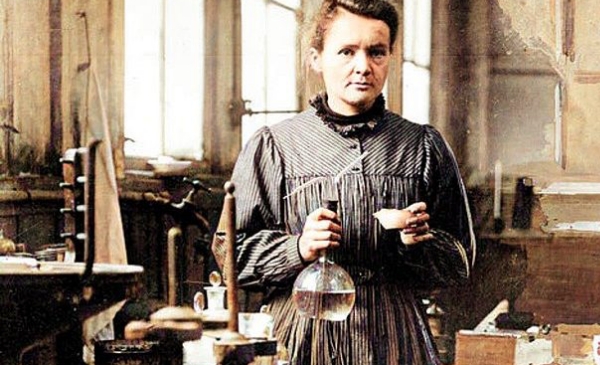We could think that March 8 is the only day of the year dedicated to women and recognized at an institutional level. But it is not like that, recently the World Day of Women in Science was celebrated, one of the social spheres where the female absence is most noticeable but, above all, where their knowledge is most invalidated.
It has been celebrated on February 11 since 2015, the first year in which it was made official by the UN, and numerous related activities and projects are carried out around the day of celebration. However, what exactly is the influence of women within the scientific sector?

Women in Science
Today, and worldwide, only 30% of researchers are women. That means 3 women out of 10. This means that the participation of men within the same area is more than doubled.
Moreover, if we go down a step and descend from professionals to students in the scientific branch, the data is very similar. In the latest study by the World Economic Forum these figures were reflected and showed how the presence of female students in careers such as engineering is reduced to just 8%. Even more, there is a scientific branch within the universities, in which there are hardly any women. In the computer sector, women represent 3% of the total.
Of course, an unimpressive ratio if we clarify that, for example, women represent 29% of the students at the Polytechnic University of Madrid. From this point of view, and in contrast, are the careers dedicated to teaching or socio-health care, where their presence increases to 78%, to the detriment of the male sector, which represents the remaining 23%.
The culture of gender roles and the lack of female role models in science
These data are not by chance, since cultures and societies based on heteronormativity with differentiated gender roles are to blame. When we are little, girls are given kitchen utensils and dolls to take care of. On the contrary, a boy will always receive cars or construction toys.
All these habits are ultimately acquired and reflected in adult life. And this not only influences our future decisions or our work preferences, but also creates identity problems associated with people’s tastes and personality.

Another separate issue is the invalidation of women’s knowledge. For a long time, women were not considered at the same level as a man, despite the fact that their achievements or knowledge far exceeded those of the latter.
This event has not only occurred in the scientific field but in any sector of society, and the proof is the invisibility of women in literature, painting, music, sports… Science is not saved either and in fact it exists a widespread phenomenon among women scientists known as the ‘Matilda Effect’.
“What would have happened if Einstein had been born a woman? Today we probably wouldn’t know who Einstein is”
It is a project that promotes the presence of women in the scientific world and rejects the discrimination suffered for years. In fact, the ‘Matilda Effect’ points to all those women who, for the simple fact of being women, were removed from the history of science. Or worse yet, women who have seen all their advances taken from them by men who appropriated them.
This project was named in honor of Matilda Joslyn Gage, an activist for women’s rights in the 19th century in the United States. In addition, the ‘Matilda Effect’ also seeks to arouse scientific interest in girls and young people, freeing them from the social stigma that science is only for men.
At this point it is clear that the lack of female references has had a negative influence on the development of women within the sector, although of course it has not been the determining factor. The vast majority of the blame lies with History, the one that for centuries has separated women from the great milestones of humanity, the one that only remembers men because ‘the world is not made for women’.
But just the opposite must have been thought by women like Joan of Arc, Isabella I of Castile, Clara Campoamor or, more recently, Margaret Thatchert or former German Chancellor Angela Merkel. Great women who, without competing, are at the same level as the great scientist par excellence: Marie Curie.

The Polish woman was a pioneer in the field of radioactivity (she discovered polonium and radium) and was the first person to receive two Nobel Prizes in different categories: Physics and Chemistry. However, ‘the mother of modern physics’ was slow to obtain the recognition it deserved and, on many occasions, its different achievements and modifications have been wrongly attributed to Albert Einstein, a contemporary of Curie and with whom she had a great friendship.
A clear example, and perhaps the first, of the ‘Matilda Effect’ that has affected so many women in science who have never received sufficient recognition.
